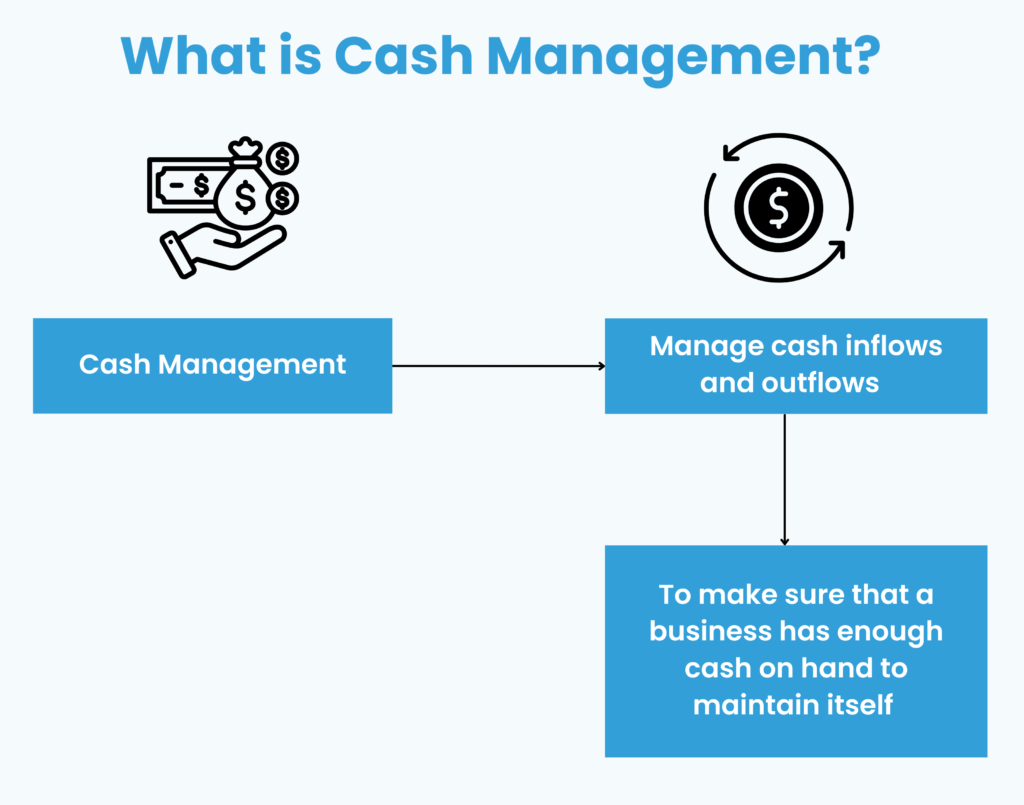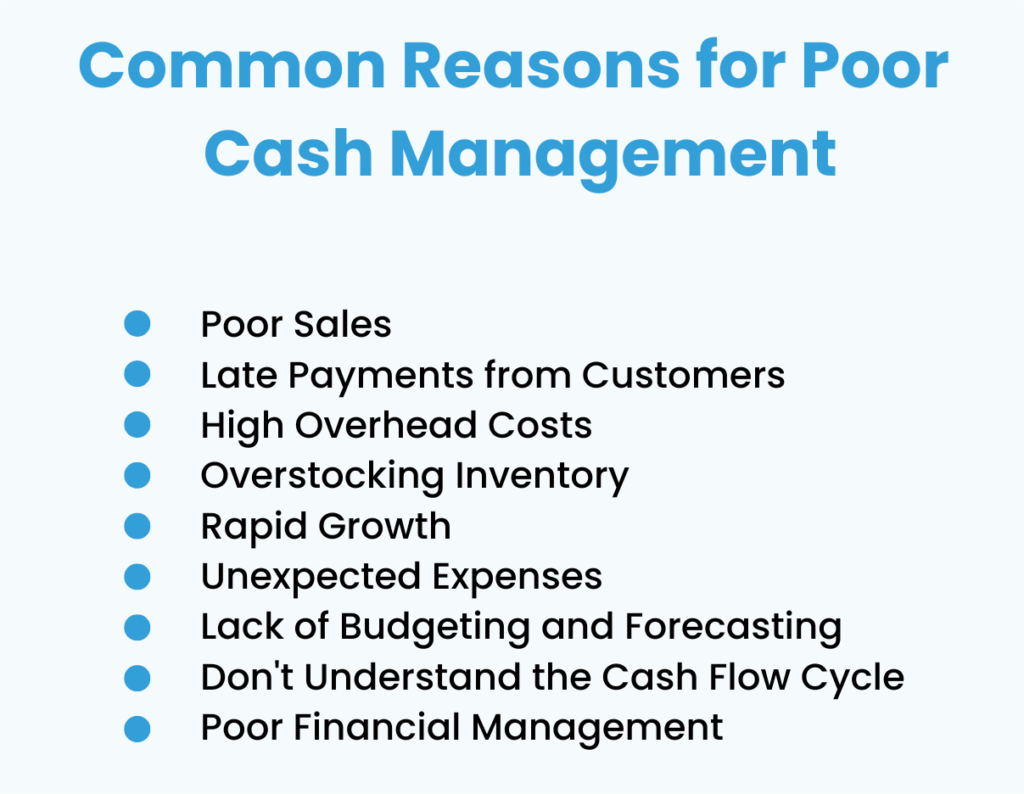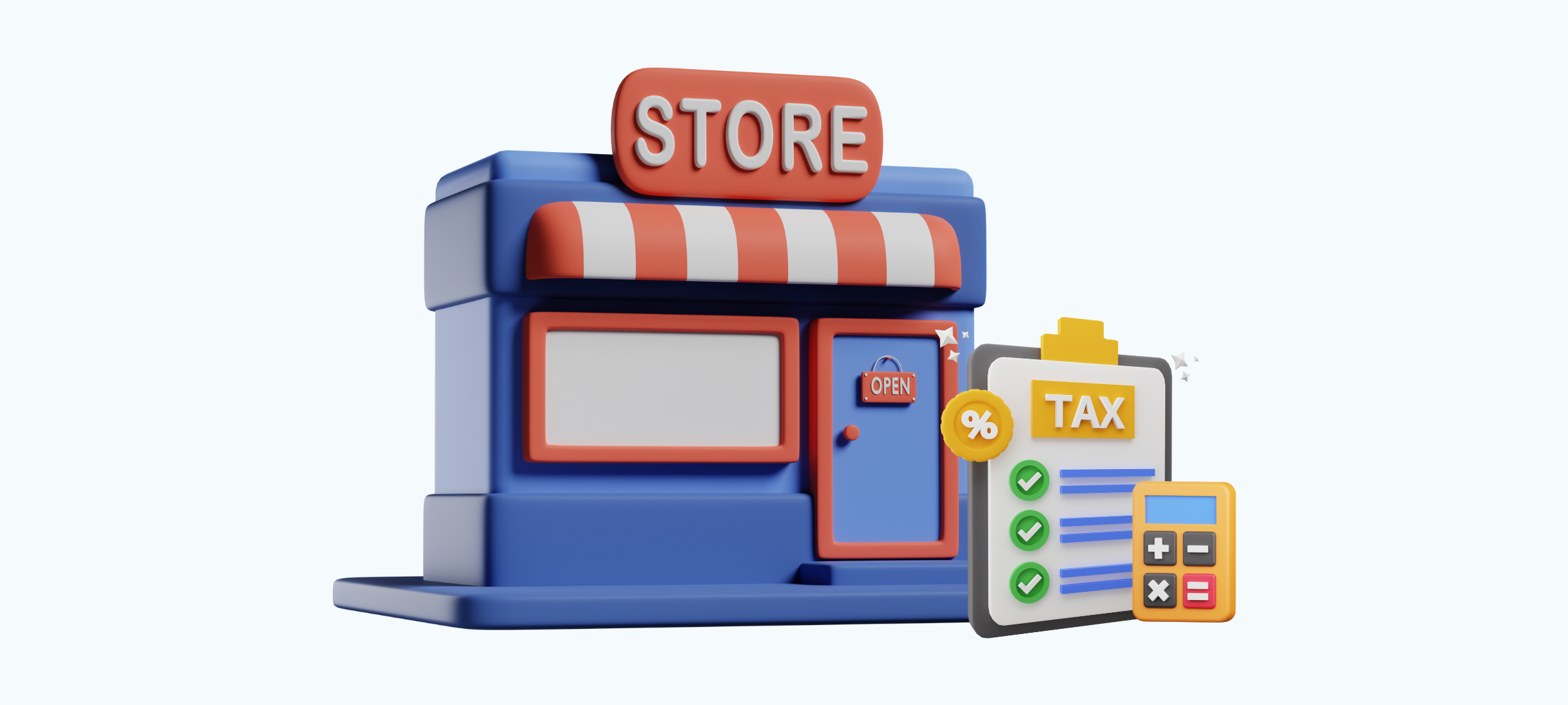
Managing your cash flow should be one of the main things small business owners focus on. Mistakes in customer service or managing supplies are not good, but running out of cash means you can't pay bills or your employees, which can really hurt your business.
Including cash management in your planning and budgeting can help avoid money problems and make sure you have enough money to pay your bills.
Let's take a closer look at cash flow management and some important tips for doing it well in your small business.
Cash flow refers to the movement of money into and out of your business. This includes:
Sales, accounts receivable, and accounts payable are pivotal in managing cash flow for small businesses. Without customers purchasing your products or services, regardless of initial capital, loans, or investor support, your business will struggle to survive."
Here's a breakdown of why these three elements are crucial for cash flow management:
It's crucial to differentiate cash flow from profit. Profit is what remains after covering all business expenses at the end of a period, whereas cash flow represents the actual liquid funds entering and exiting your business.
1. Cash flows from operations (CFFO): This category focuses on the cash generated by a company's core business activities. It's essentially the lifeblood of a business, reflecting its ability to turn sales into actual cash.
2. Cash flows from investing activities (CFI): This category tracks the cash used to acquire or dispose of long-term assets like property, plant, and equipment (PP&E), as well as investments in other companies.
3. Cash flows from financing activities (CFF): This category deals with how a company raises cash through debt or equity financing, and how it distributes cash to its owners.
By analyzing these categories, investors and analysts can gain valuable insights into a company's financial health and its ability to generate cash to support its operations, growth, and debt obligations.
Consider a small retail business:
The net cash flow for the period would be the sum of these activities: 30,000(OCF)−10,000(ICF)+15,000(FCF)−5,000(FCF)=30,000
Cash flow management is the process of monitoring, analyzing, and optimizing the cash inflows and outflows to ensure a company can meet its financial obligations and maintain financial stability. Effective cash flow management involves strategies to accelerate cash inflows, delay cash outflows, and optimize the balance of cash on hand.

Using the same small retail business, cash flow management might involve:
Imagine this: you're facing a sudden business hurdle. A key customer unexpectedly stops ordering, or your delivery truck breaks down. Without a steady flow of cash, these situations can quickly turn into roadblocks. This is where cash flow management becomes your secret weapon.
Here's how it empowers your business:
By actively managing your cash flow, you gain the resilience to overcome challenges, seize opportunities, and ultimately achieve your financial goals. It's not just about keeping the lights on, it's about giving your business the power to thrive.

Feeling lost in a sea of invoices and worried about keeping your business afloat? Bookkeeperlive, your one-stop accounting and bookkeeping service, can be your life raft! You can easily connect with our expert bookkeepers, and we will transform data into actionable insights. We'll streamline your record-keeping, forecast cash flow with pinpoint accuracy, and identify areas to optimize your finances. With Bookkeeperlive by your side, you'll gain the peace of mind that comes with knowing your cash flow is under control, allowing you to focus on what you do best – running your business!
Consult your tax advisor on how your specific business structure and cash flow strategies might impact your taxes. For instance, there may be tax breaks for certain types of business expense
The frequency depends on your business. Weekly is ideal, but bi-weekly or monthly might be sufficient for stable businesses.
Struggling to pay bills on time, relying heavily on credit cards, or having to delay payments to suppliers are all red flags.
Factor in seasonal trends, consider potential disruptions (e.g., supply chain issues), and build in buffers for unexpected costs.
Explore high-yield savings accounts or money market accounts for a balance of security and some return on investment.
Debt can be a tool, but use it cautiously. Only borrow what you can confidently repay based on your projected cash flow.
BookkeeperLive provides affordable bookkeeping and accounting services tailored to your business goals.





No calls, No meetings, No spam. Get started with a free trial by filling out the form.
*NDA included for your data protection.
Copyright © 2025 BookkeeperLive. All rights reserved. Privacy Policy Terms of Use
Please visit our India site to see services designed for your country
Enter the code, fill out the form, and unlock financial clarity with a free trial.